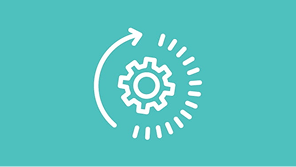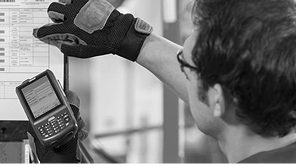Happier - Wellbeing solutions for improved focus and fulfilment at school
Dr Justin Coulson, PhD
The research is in. Educator wellbeing is low. School leader wellbeing is even lower. The majority of educators plan on leaving the profession entirely within the next 10 years. But we don't need studies to tell us about the low state of wellbeing within our schools. The evidence is readily apparent.
It's little wonder that educators and school leaders are stressed and burnt out. An increasing number of students are presenting with behavioural challenges, a growing number of classrooms have a significant portion of students with additional needs or a non-English speaking background, a crowded curriculum and excessive administrative and reporting requirements leave many teachers feeling as though their workload is unmanageable, and over-reaching parents with interfering agendas are increasingly escalating to the point of threats and intimidation. Additionally, there are many general stressors that also impact educators, such as rising interest rates, the soaring cost of living, anxiety over housing affordability, and engaging in carer responsibilities for children or ageing parents.
The unfortunate reality is that most of these factors are out of our control. We can't do anything about the economy or interest rates. We can't control the curriculum. We have no power over the problems kids bring to class. So much of what happens is out of our hands. The problem is that when we focus on only the things we can't control, we fall into a feeling of helplessness.
How can educators shift from feeling helpless to feeling empowered? How can you look after your own wellbeing? What kind of self-care do you, as an educator or school leader, need to do so you can flourish at home, and at school?
While professionally things often feel out of control, there are many things we can do about our circumstances. We hear about these things all the time eat a balanced diet, exercise regularly, get enough sleep, spend time investing in meaningful relationships, meditate or engage in mindfulness, spend time in nature. The trouble is, we know that these things can boost our wellbeing, but that doesn't make them easy to do. We know that we will feel better for eating a nourishing fruit salad, but the block of chocolate is more tempting. We know that we should go for a walk, but it's easier to collapse onto the couch and scroll social media than it is to lace on our walking shoes. We know that we will feel happier by meditating or spending time with loved ones, but instead we squander our time on Netflix until we eventually go to bed well past bedtime. We know what we can do to help us feel happier, yet we struggle to convert our intentions to live more purposefully into action.
Why?
It would be easy to point the finger of blame at our jobs for leaving us too exhausted to engage in self-care (after all, we already know that teachers are chronically overworked). While that may be part of the cause, it's not the whole story.
It has been estimated that we make up to 35,000 decisions every single day. While the majority of these decisions are unconscious (like scratching an itch) or low-consequence (like what cereal to have for breakfast), around 122 are informed decisions. These are the choices that have the capacity to be pivotal to improving your wellbeing.
We could make the conscious, informed, intentional decisions to not eat the chocolate, to go for a walk after dinner, to go to bed early. The problem with that approach is that we're relying on will power. We need to consciously will ourselves to choose to walk, go to bed, and put away the chocolate, day after day (or minute after minute for the chocolate, if you're anything like me). Which is great, until we've made so many decisions over the course of the day that our will power runs out, and decision fatigue causes us to default back to the easier, habitual actions.
Fortunately, there is another way.
James Clear, the bestselling author of Atomic Habits, says You do not rise to the level of your goals. You fall to the level of your systems. Our willpower alone is not enough for us to implement the changes we need to boost our wellbeing. If we rely on making the right intentional choice every day, we will eventually fail. But if we can set up habits, steps we just do, we can make our self-care an automatic process. So instead of having a vague wellbeing goal, let's look at creating a wellbeing system:
First, make a commitment to live the first 15-60 minutes each day without using your phone. At all. Find peace.
By checking our phones first thing in the morning, we prime our brains for distraction, as scrolling on our phones releases dopamine in our brains (the reward chemical), which our brain then craves for the rest of the day, driving us to keep being distracted by our phones as it seeks out more dopamine hits. It also takes time away from our minds to sort through the plans for the day, prioritise according to our values, and visualise what we want to achieve for the day. It can even trigger our stress responses, such as when we register the amount of unread emails in our inbox, or see a negative story or comment in our news feeds.
However, when we start our day without our phones, we free up time for exercising, making a healthy breakfast, meditating, setting goals, or reading a book. We can start our days more intentionally, rather than having our activities being dictated by what notifications pop up on our screens.
We can set ourselves up for success by modifying our environment. We can do this by making it harder to check our phones, like by charging it in another room overnight. Or we can make it easier to do a replacement activity, for example by having a book right on our bedside table. Which brings us to the next step in our wellbeing system.
Second, read something that improves you.
Educators regularly talk to parents and children about the benefits of reading. Most primary school students are asked to read at least 15 minutes per day. Yet reading is beneficial at any age it protects against Alzheimer's, reduces stress, improves memory and concentration, increases analytical skills, and promotes inner peace.
It's easy to say that we don't have time to read for pleasure. There's a lot of reading between lesson planning, report writing, and marking homework and exams. But when we make the time to read for pleasure, we receive so many benefits. And those benefits double when we read something that inspires and motivates us.
We can put a book on our bedside table to read before bed or first thing in the morning. Or we can download an eBook on our phones to read when we would normally turn to scrolling social media. Make reading the default time-filling action.
Third, find one thing each day that you can do for you. It may be movement (exercise) or stillness (meditation/mindfulness or prayer/spiritual practice).
As educators, most of the day is accounted for in meeting the needs of other people. If we have children or teenagers, this responsibility doesn't end when we get home. Yet putting everyone else's needs first all the time is a recipe for inevitable burnout. No one else is as invested in making sure that our needs are met as we should be.
Build it into the daily routine. Walk or ride to work. Arrive at work 10 minutes early and meditate before starting any tasks. Have a gym bag in the car to encourage stopping at the gym on the way home. Find what works best, and then build these moments of movement and stillness into daily life.
Fourth, tap into strong relationships.
Loneliness is a killer. It carries with it similar risks to mortality as smoking and alcoholism. Contrastingly strong relationships lower stress, boost happiness, and strengthen feelings of self-worth. Remember that being married/partnered and working within a busy school environment does not guarantee against loneliness. Simply being around people is not enough, it's the depth of our relationships that matters.
Set a goal to think of one person you could catch up with for breakfast or morning tea each week. Pick a day that works and book it in. Each week. Make it part of your system. Establish the habit.
When we ask ourselves what makes life worth living, we see that there is a LOT that's in our power to control. We don't have to flounder through life feeling as though we have no control over our happiness. Developing a system that makes self-care a habit offers a sustained wellbeing boost.
Establish the system. Make it a habit. Watch what happens.
About Dr Justin Coulson
Dr Justin Coulson is the co-host and parenting expert on Channel Nine’s Parental Guidance, the founder of happyfamilies.com.au, and one of Australia’s most trusted parenting, relationships and wellbeing experts. Over the past decade he has helped innumerable families with his 7 books about raising children, his hundreds of media appearances (including all of Australia’s major news outlets, and even the Washington Post and the New York Times), and two viral videos that have been viewed a combined 80 million times!
Justin holds a PhD in Psychology. He and his wife Kylie have been married since the late 1990s and are the parents of 6 daughters.
















































